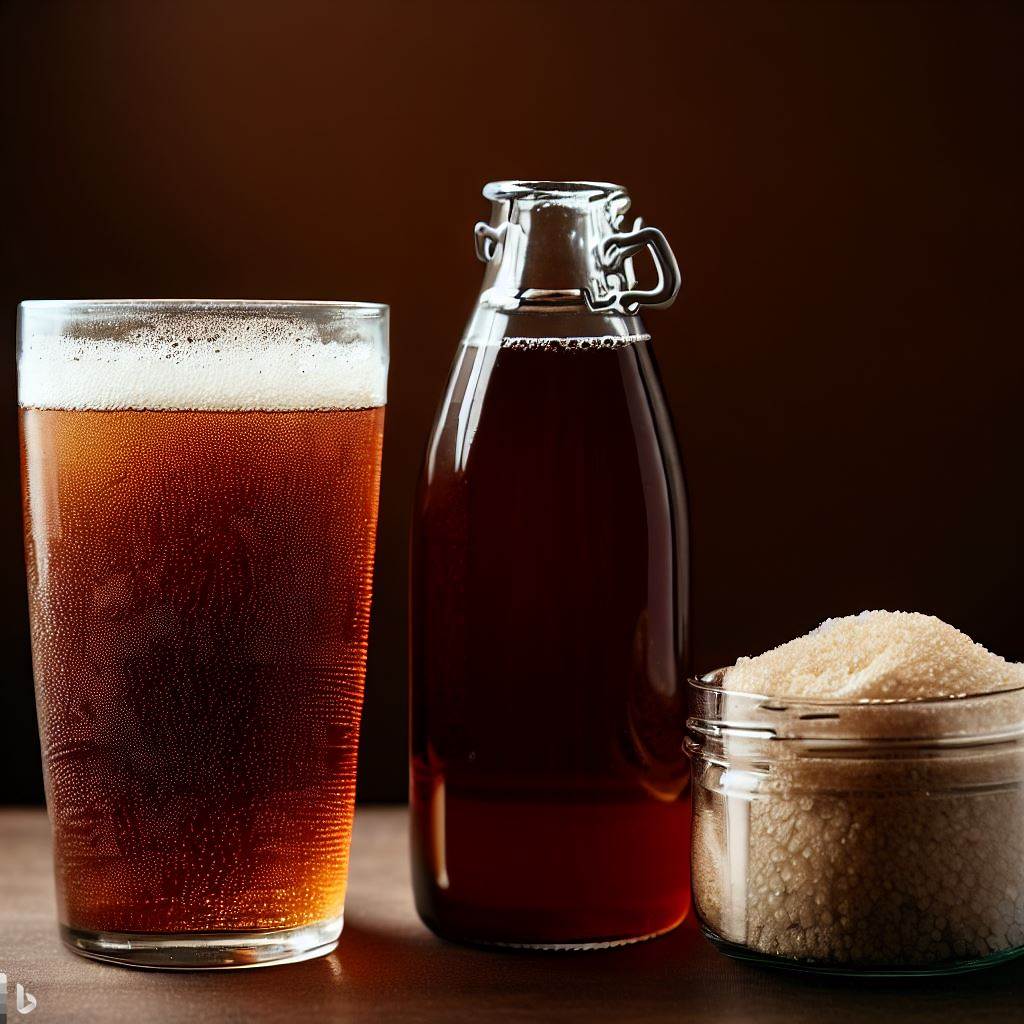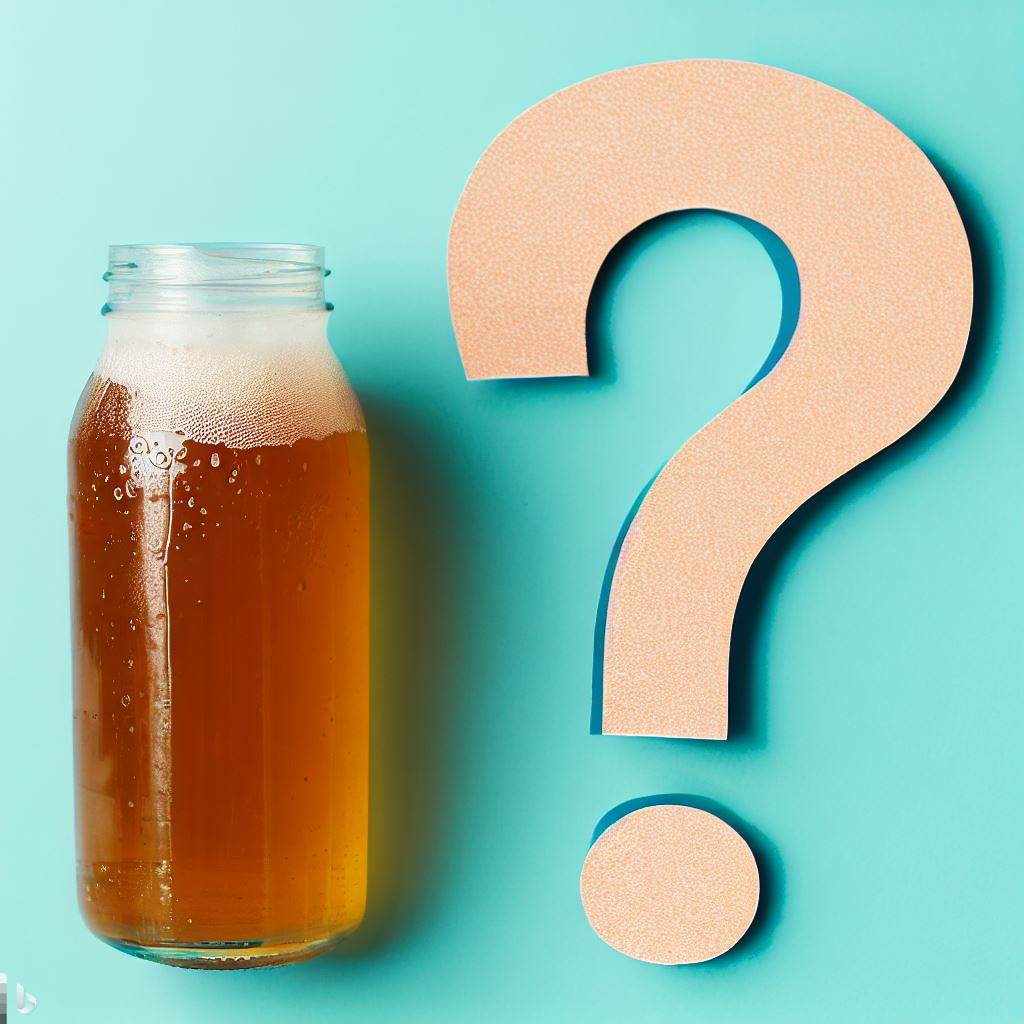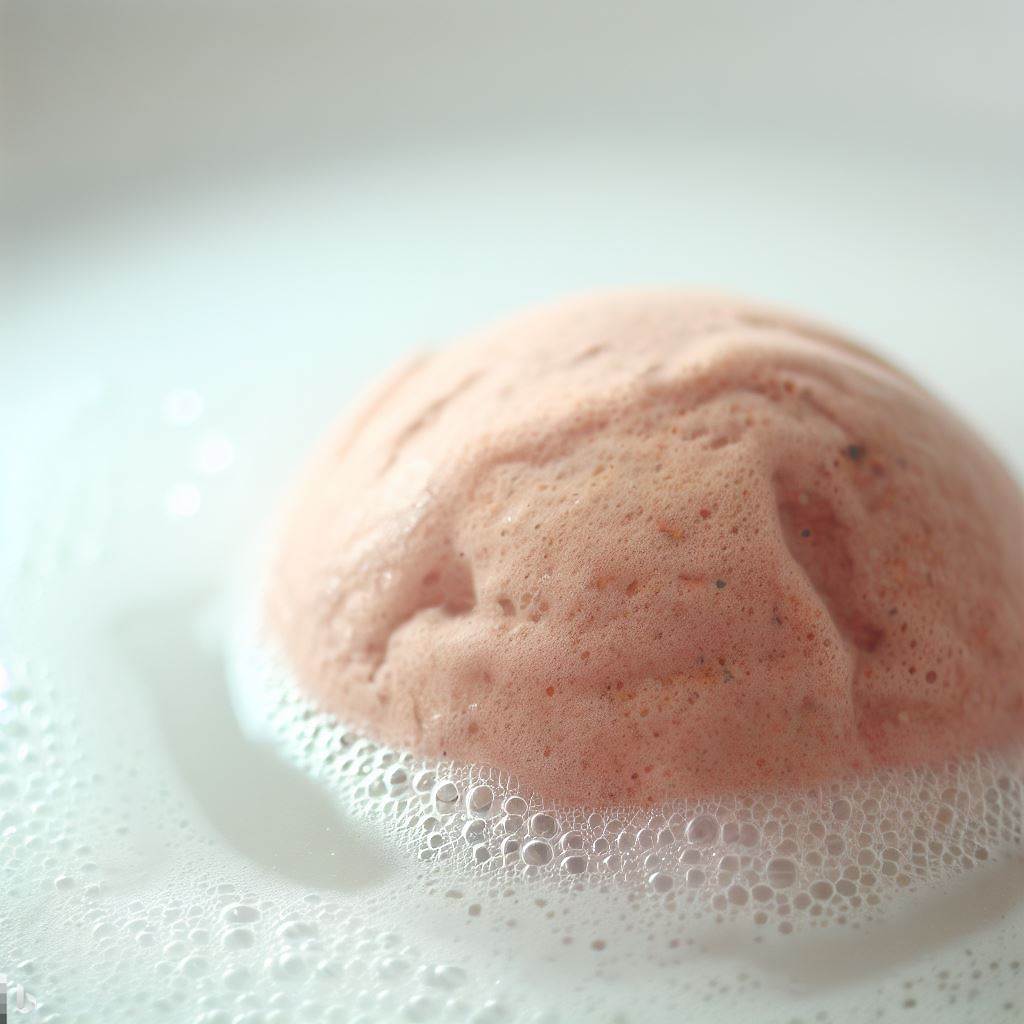Introduction
This fizzy, tangy “booch” is made by fermenting sweetened tea with a symbiotic culture of bacteria and yeast (SCOBY). Booch has been consumed for centuries in various cultures and is believed to possess numerous therapeutic properties. In this blog post, we will explore the question, “What is kombucha good for?” and delve into the many benefits this beverage offers. Lets dive in! Feel free to click the main topics to get to that part of the page quickly!
Blog Outline:
I. Introduction
- Definition of kombucha
- Brief history and popularity
II. Nutritional Benefits of Kombucha
- Vitamins and minerals
- Probiotics and gut health
- Antioxidants and detoxification
III. Health Benefits of Kombucha
- Improved digestion
- Enhanced immune system
- Weight management
IV. Potential Disease Prevention
- Reduced risk of chronic diseases
- Lowered cholesterol levels
- Regulation of blood sugar
- Improved mood and stress reduction
- Enhanced mental clarity and focus
- Reduced symptoms of anxiety and depression
- Anti-aging properties
- Acne prevention and treatment
- Promoting a healthy complexion
VII. How to Incorporate Kombucha into Your Diet
- Brewing kombucha at home
- Kombucha as a beverage choice
- Recipes and creative uses
- Recap of kombucha benefits
- Final thoughts and recommendations
Nutritional Benefits of Kombucha
Kombucha is rich in essential vitamins, minerals, and other nutrients. Here are some of the key nutritional components found in this fermented tea:
What Is Kombucha Good For? Exploring the Benefits of This Fermented Tea
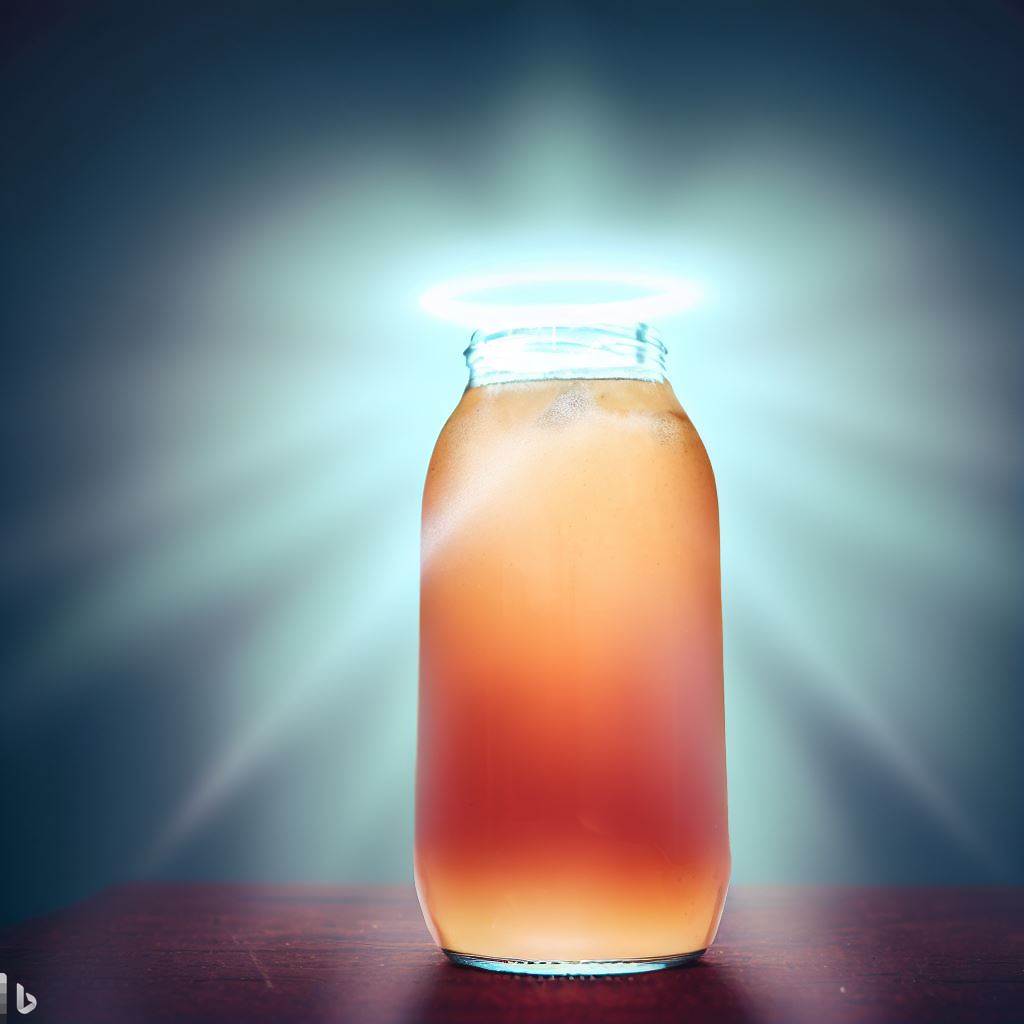
Vitamins and Minerals
- B Vitamins: Kombucha is a natural source of B vitamins, including B1 (thiamine), B2 (riboflavin), B3 (niacin), B6 (pyridoxine), and B12 (cobalamin). These vitamins play a crucial role in energy production, brain function, and maintaining healthy skin.
- Vitamin C: Kombucha contains vitamin C, a potent antioxidant that supports the immune system, promotes collagen production, and aids in iron absorption.
- Minerals: Kombucha provides minerals such as magnesium, calcium, iron, and zinc, which are essential for various bodily functions, including bone health, muscle function, and enzyme production.
Probiotics and Gut Health
Kombucha is a natural source of probiotics, which are beneficial bacteria that support gut health. The fermentation process of booch creates a diverse microbial community, including strains of beneficial bacteria like Lactobacillus and Bifidobacterium. These probiotics help maintain a healthy balance of gut flora, aid in digestion, and support immune function.
Antioxidants and Detoxification
Kombucha contains a range of antioxidants, such as polyphenols, which help neutralize harmful free radicals in the body. These antioxidants have been linked to various health benefits, including reduced inflammation, improved heart health, and protection against chronic diseases.
Health Benefits of Kombucha

Beyond its nutritional value, booch offers several health benefits when incorporated into a balanced diet. Let’s explore some of these advantages in detail:
Improved Digestion
The probiotics found in booch can contribute to improved digestion andreduced digestive issues. By promoting the growth of beneficial bacteria in the gut, kombucha supports a healthy digestive system. This can lead to better nutrient absorption, reduced bloating, and relief from conditions such as constipation and irritable bowel syndrome (IBS).
Enhanced Immune System
Due to its probiotic content and immune-boosting properties, kombucha can help strengthen the immune system. The probiotics in booch support the gut-associated lymphoid tissue (GALT), which is a crucial component of the immune system. A healthy gut microbiome is essential for overall immune function, as it helps fight off harmful pathogens and reduces the risk of infections.
Weight Management
Kombucha may aid in weight management due to its potential impact on metabolism and appetite regulation. Some studies suggest that the acetic acid produced during the fermentation process of booch may help control appetite and reduce cravings. Additionally, kombucha is a low-calorie beverage compared to sugary drinks, making it a healthier alternative for individuals looking to maintain a healthy weight.
Potential Disease Prevention
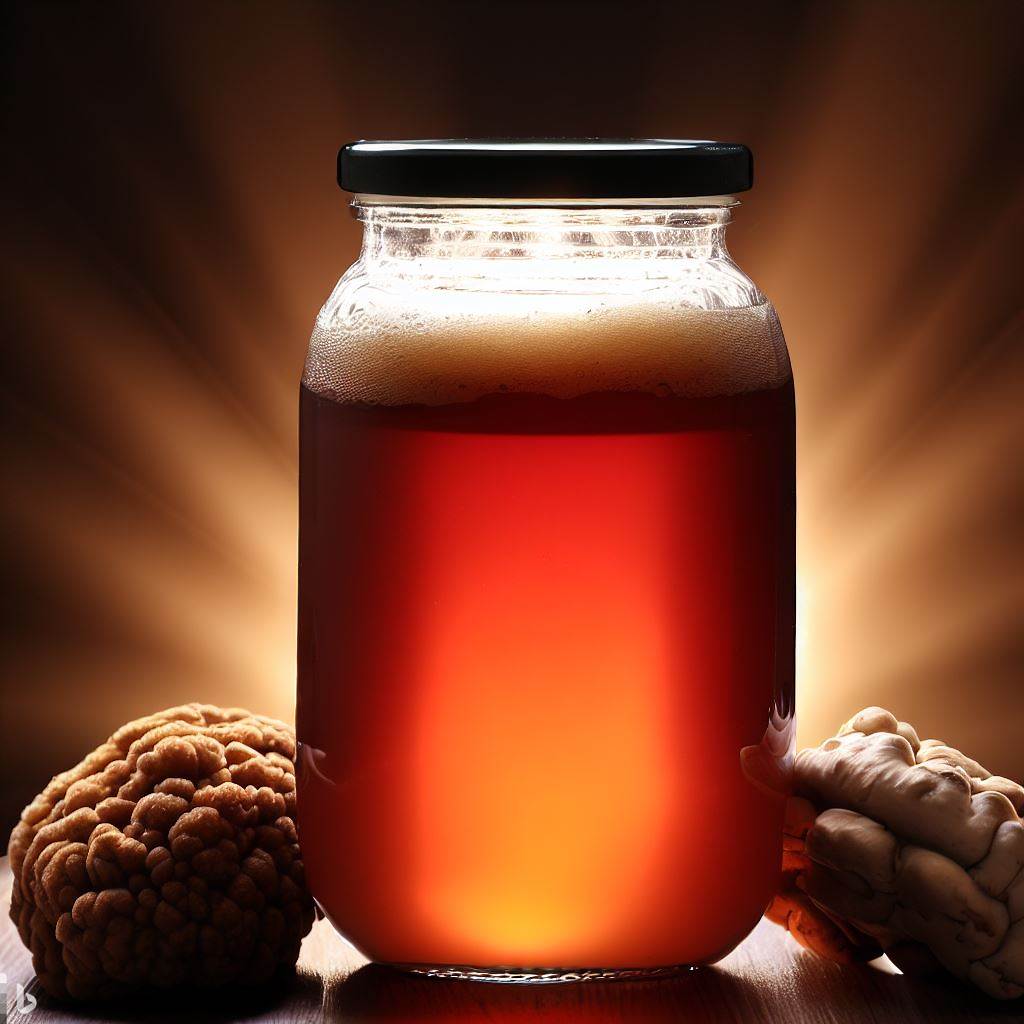
The consumption of kombucha has been associated with a reduced risk of various chronic diseases. Let’s explore some of the potential disease-preventive effects of the booch:
Reduced Risk of Chronic Diseases
Kombucha’s high antioxidant content may help protect against chronic diseases, including heart disease, cancer, and diabetes. Antioxidants combat oxidative stress and inflammation in the body, which are key contributors to the development of chronic diseases. By neutralizing free radicals, kombucha’s antioxidants can help prevent cellular damage and support overall health.
Lowered Cholesterol Levels
Studies suggest that kombucha consumption may contribute to reduced LDL (bad) cholesterol levels and increased HDL (good) cholesterol levels. High LDL cholesterol is associated with an increased risk of heart disease, while high HDL cholesterol is beneficial for heart health. Kombucha’s potential cholesterol-lowering effects can be attributed to its antioxidants and certain compounds produced during fermentation.
Regulation of Blood Sugar
Research indicates that booch may help regulate blood sugar levels and improve insulin sensitivity. This is particularly beneficial for individuals with diabetes or those at risk of developing the condition. Kombucha’s potential blood sugar-regulating effects can be attributed to its polyphenols and organic acids, which help modulate glucose metabolism.
Kombucha for Mental Health

In addition to its physical health benefits, kombucha has been associated with several positive effects on mental well-being:
Improved Mood and Stress Reduction
Kombucha contains certain compounds, such as B vitamins and polyphenols, that support brain health and may contribute to improved mood. B vitamins play a crucial role in the production of neurotransmitters, which regulate mood and emotions. Additionally, the antioxidants present in kombucha can help reduce oxidative stress and promote relaxation, potentially alleviating symptoms of stress and anxiety.
Enhanced Mental Clarity and Focus
The probiotics and antioxidants found in booch can positively impact cognitive function, leading to enhanced mental clarity and focus. A healthy gut microbiome is linked to improved brain health and cognitive performance. Kombucha’s probiotics support gut-brain communication, while its antioxidants protect brain cells from oxidative damage.
Reduced Symptoms of Anxiety and Depression
While kombucha alone is not a substitute for professional mental health treatment, some individuals report a reduction in symptoms of anxiety and depression when incorporating booch into their diet. The precise mechanisms behind this potential benefit are not fully understood but may be attributed to the combination of gut health support, stress reduction, and nutrient-rich composition of kombucha.
Kombucha and Skin Health
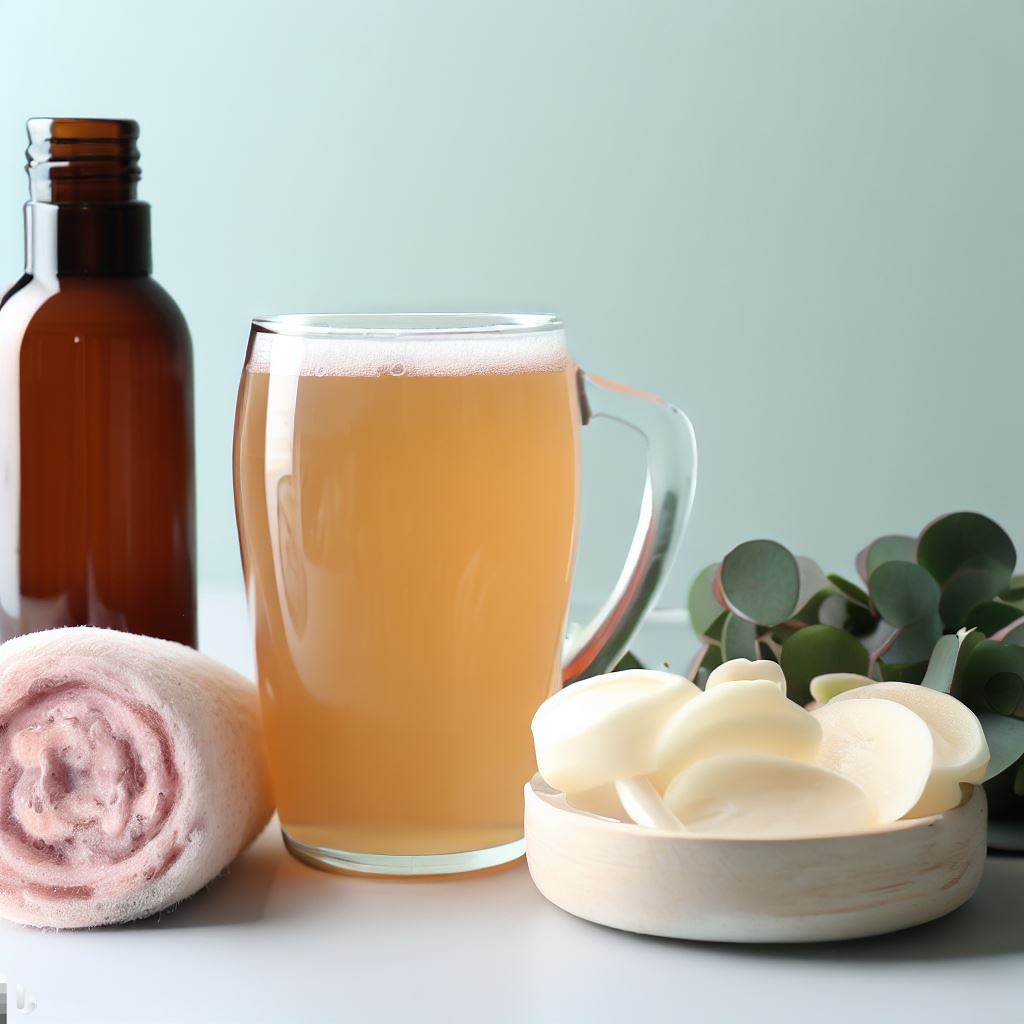
Kombucha’s potential benefits extend to the realm of skin health. The following advantages have been associated with the consumption and topical application of booch:
Anti-aging Properties
The antioxidants andorganic acids present in kombucha have anti-aging effects on the skin. They help combat free radicals, which contribute to premature aging, such as wrinkles, fine lines, and dullness. Kombucha’s ability to promote collagen production also contributes to firmer, more youthful-looking skin. Regular consumption of booch, along with the application of kombucha-infused skincare products, can help improve skin elasticity and reduce the signs of aging.
Acne Prevention and Treatment
Kombucha’s antimicrobial and anti-inflammatory properties make it a potential ally in the fight against acne. The probiotics in booch support a healthy balance of bacteria on the skin, preventing the overgrowth of acne-causing bacteria. Additionally, kombucha’s organic acids help regulate sebum production, which can reduce the occurrence of clogged pores and acne breakouts. Using kombucha-infused toners or incorporating kombucha into DIY face masks can provide additional benefits for acne-prone skin.
Promoting a Healthy Complexion
Kombucha’s detoxifying properties and rich nutrient profile contribute to a healthy complexion. The detoxification process helps eliminate toxins from the body, which can reflect positively on the skin. Kombucha’s vitamins, minerals, and antioxidants nourish the skin from within, promoting a natural glow and even skin tone. Regular consumption of booch, along with a well-rounded skincare routine, can help maintain a vibrant and healthy complexion.
How to Incorporate Kombucha into Your Diet

Now that we’ve explored the many benefits of the booch, let’s discuss how you can incorporate it into your diet:
Brewing the Booch at Home
Brewing your own kombucha at home can be a fun and cost-effective way to enjoy this beverage. It requires a few simple ingredients: tea, sugar, a SCOBY, and water. By following a step-by-step brewing process and allowing the tea to ferment for the recommended duration, you can create your own flavorful kombucha. There are various resources available at GMK on how to brew booch.
Kombucha as a Beverage Choice
Kombucha is readily available in many stores, making it a convenient beverage choice. It can be enjoyed on its own as a refreshing carbonated drink or used as a mixer in mocktails and cocktails. With a wide range of flavors available, you can choose the ones that suit your taste preferences. When purchasing booch , make sure to check the labels for added sugars and opt for brands that use organic ingredients.
Recipes and Creative Uses
Booch can also be incorporated into various recipes and creative uses. Consider adding kombucha to smoothies for an extra health boost or using it as a base for salad dressings and marinades. Kombucha can also be used in baking as a substitute for other liquids, adding a unique flavor profile to cakes, muffins, and bread. Get creative and experiment with different ways to incorporate booch into your favorite dishes.
Conclusion
In conclusion, kombucha is a versatile and beneficial beverage that offers numerous advantages for overall health and well-being. From its nutritional value to its potential disease-preventive effects, booch has gained recognition as a health-promoting drink. Additionally, kombucha’s positive impact on mental health and skin health further contributes to its popularity. Whether you choose to brew your own booch or purchase it from stores, incorporating this fizzy, tangy beverage into your diet can be a refreshing and beneficial choice.
Remember to enjoy booch in moderation, as excessive consumption may lead to adverse effects. If you have any underlying health conditions or concerns, it’s always best to consult with a healthcare professional before making significant changes to your diet.
FAQ – What is Kombucha Good For?
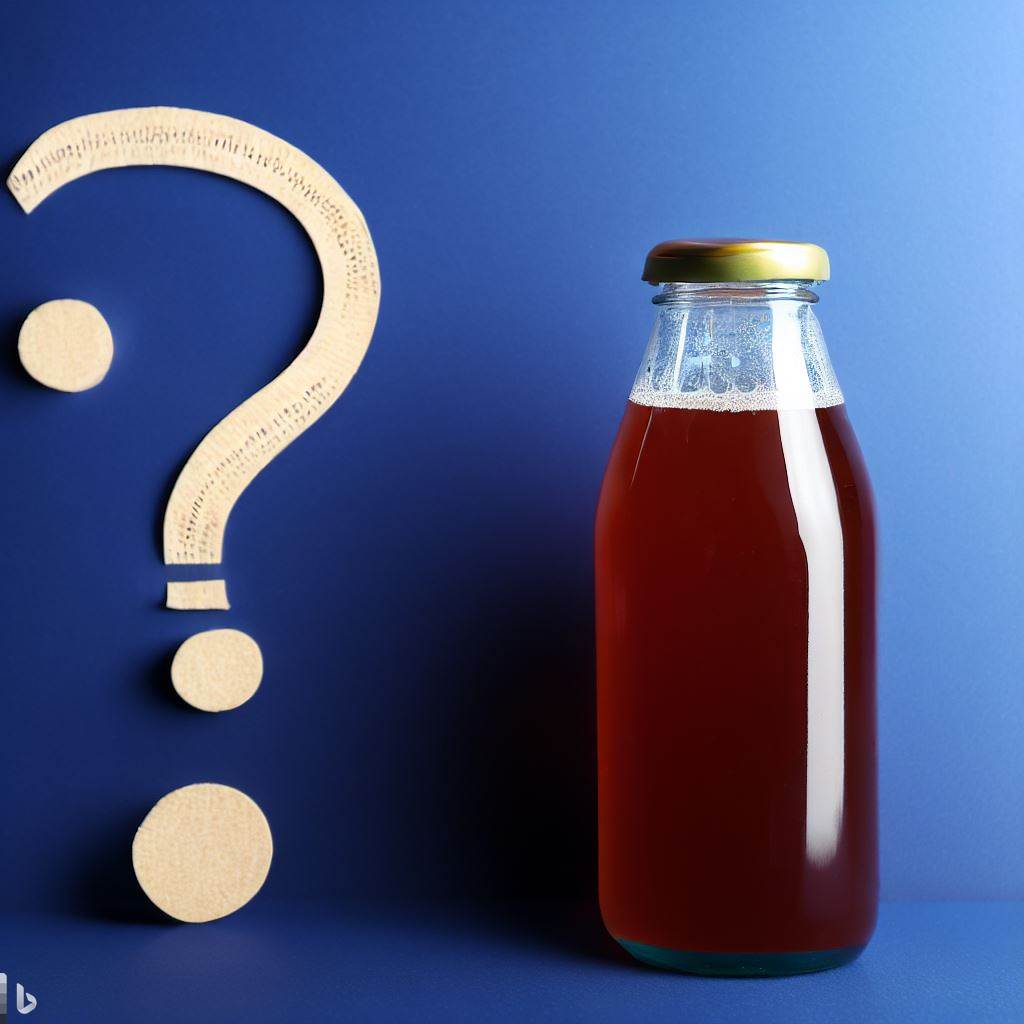
- Is kombucha suitable for everyone?
- Whil0e kombucha is generally considered safe for most people, certain individuals should exercise caution or avo0id it altogether. This includes pregnant women, individuals with compromised immune systems, and those with a history of allergic reactions to fermented foods.
- Can kombucha help with weight loss?
- While kombucha may support weight management due to its potential impact on metabolism and appetite regulation, it should not be viewed as a magic solution for weight loss. Incorporating kombucha into a balanced diet and an active lifestyle can be beneficial for overall health.
- Can kombucha replace medical treatments for mental health conditions?
- No, kombucha should not replace professional medical treatments for mental health conditions. While some individuals may experience a reduction in symptoms of anxiety or depression when consuming booch, it is essential to seek appropriate medical care for mental health concerns.
- Are there any potential side effects of consuming kombucha?
- Some individuals may experience mild side effects when consuming booch, such as bloating, gas, or an upset stomach. These effects are generally temporary and subside as the body adjusts to the beverage. It’s important to start with small amounts of booch if you are new to it and gradually increase your intake to assess your tolerance.
- Can I make flavored booch at home?
- Yes, you can experiment with various flavors when brewing kombucha at home. After the initial fermentation process, you can add fruit juices, herbs, or spices to infuse different flavors into your booch.
Thank you so much for visiting GMK on our Blog Post: What is Kombucha Good for. Read other articles that may interest you!



